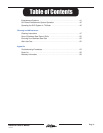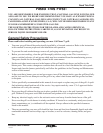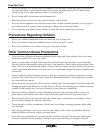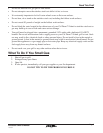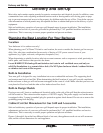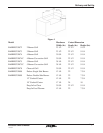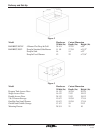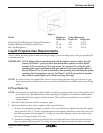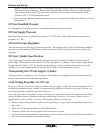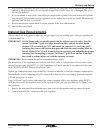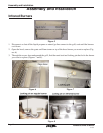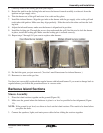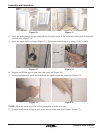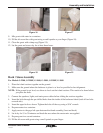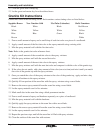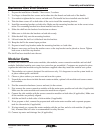Special offers from our partners!

Find Replacement BBQ Parts for 20,308 Models. Repair your BBQ today.
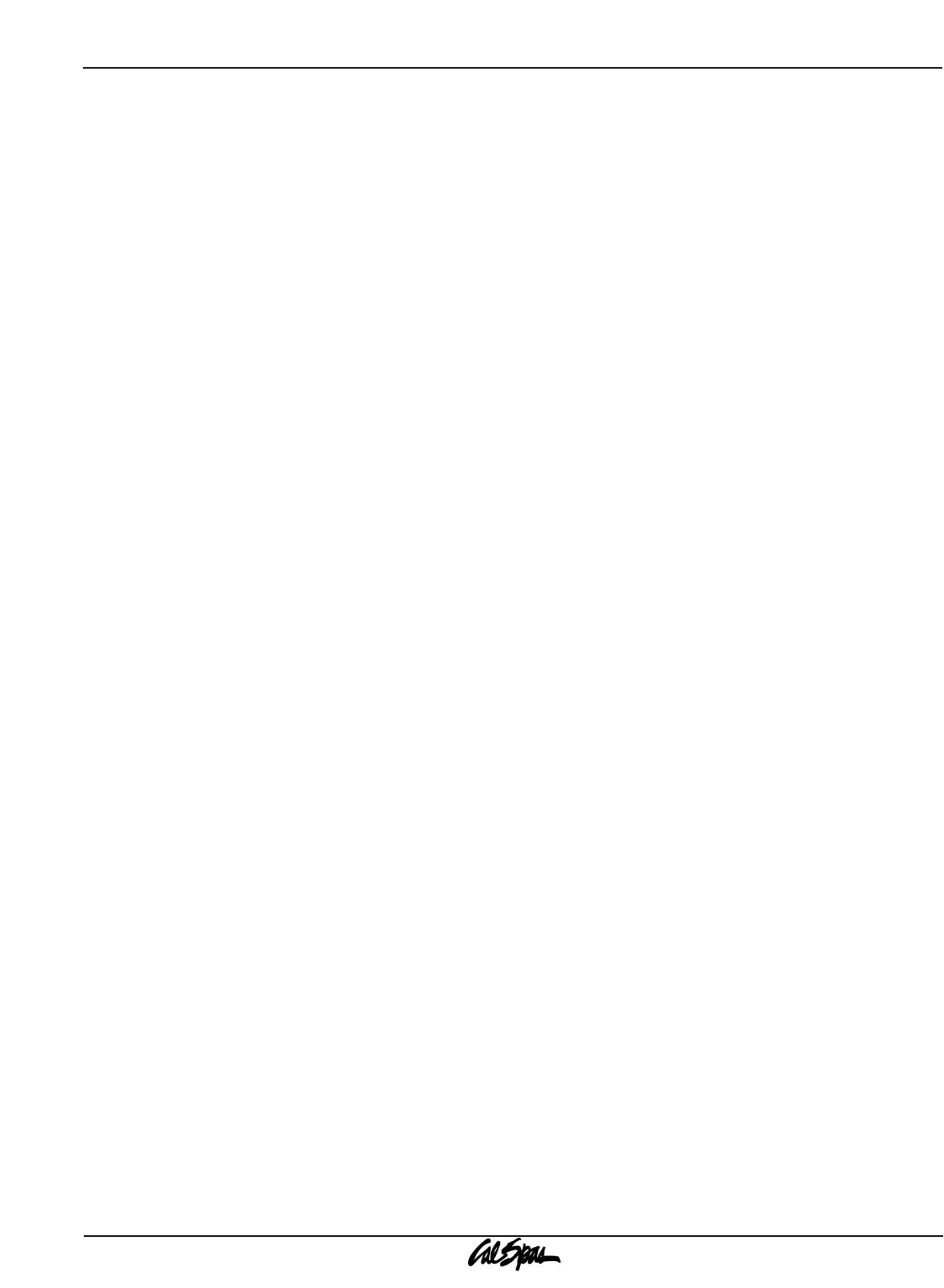
Barbecue Owner’s Manual
Delivery and Set-Up
www.calspas.com
area of 10 square inches (64.5cm≈). If ventilation openings at floor level are in a sidewall, there
shall be at least two openings. The bottom of the openings shall be at floor level and the upper
edge no more than 5 inches (127 mm) above the floor. The openings shall be equally sized,
spaced at 180˚ (3.14 rad) and unobstructed.
c. Every opening shall have minimum dimensions so as to permit the entrance of a 1/8 inch (3.2 mm)
diameter rod.
LP Gas Manifold Pressure
For plumbed-in LP installation, use a convertible regulator and set it for LP gas.
LP Gas Supply Pressure
Maximum line pressure for plumbed-in propane is 14” WC psi (3.5 kPa). Minimum line pressure for
propane is 11” WC.
LP Gas Pressure Regulator
The unit must be used with the gas pressure regulator. The regulator will control and maintain a uniform
gas pressure in the manifold. The burner orifices have been sized for the gas pressure delivered by the
regulator.
LP Gas Cylinder Specification
Any LP gas supply cylinder used with this grill must be approximately 12 inches in diameter and 18
inches high. The maximum fuel capacity is 20 lbs. of propane, or 5 gallons. Full cylinder weight should
be approximately 38 lbs. (43.7 lbs. nominal water capacity.) Always use the cylinder dust cap on the
cylinder valve outlet during transport and when the cylinder is not connected to the grill.
Transporting the LP Gas Supply Cylinder
Transport only one cylinder at a time. Transport each cylinder in an upright and secure manner with the
control valve turned off and the dust cap in place.
Leak Testing Procedure for LP Gas
Perform a leak test at least once each year whether the gas supply cylinder has been disconnected or not.
In addition, whenever the gas cylinder is connected to the regulator or whenever any part of the gas sys-
tem is disconnected or replaced, perform a leak test.
As a safety precaution, remember to always leak test your grill outdoors in a well-ventilated area. Never
smoke or permit sources of ignition in the area while doing a leak test. Do not use a flame, such as a
lighted match to test for leaks. Use only a leak testing solution of sudsy water.
1. Prepare a leak testing solution of sudsy water by mixing in a spray bottle one part liquid soap to one
part water.
2. Make sure all the control knobs are in the OFF position.
3. Turn the cylinder valve knob counter clockwise one turn to open.
4. Apply the leak-testing solution by spraying it on joints of the gas delivery system. Blowing bubbles in
the soap solution indicates that a leak is present.
Page 8
12/17/04



